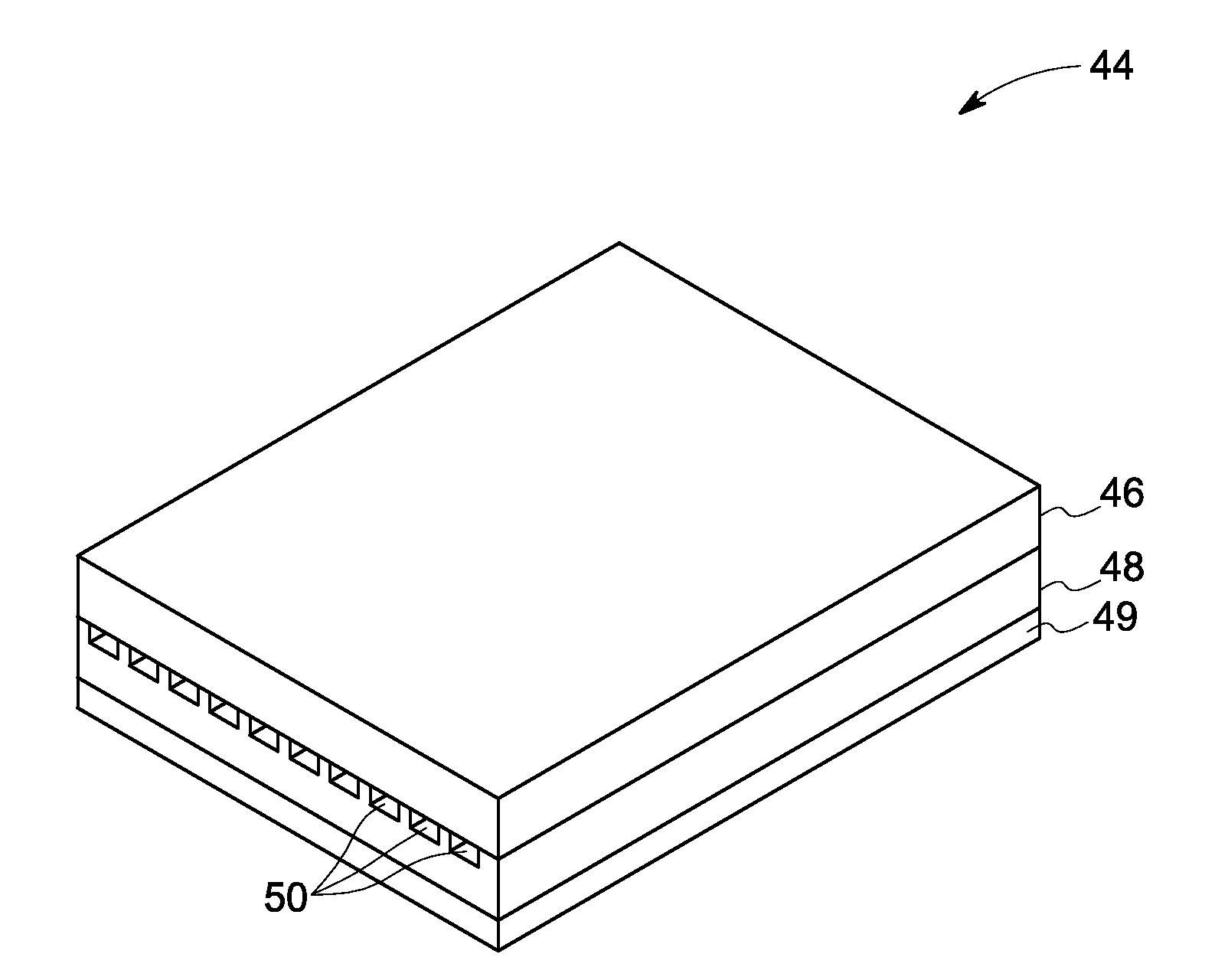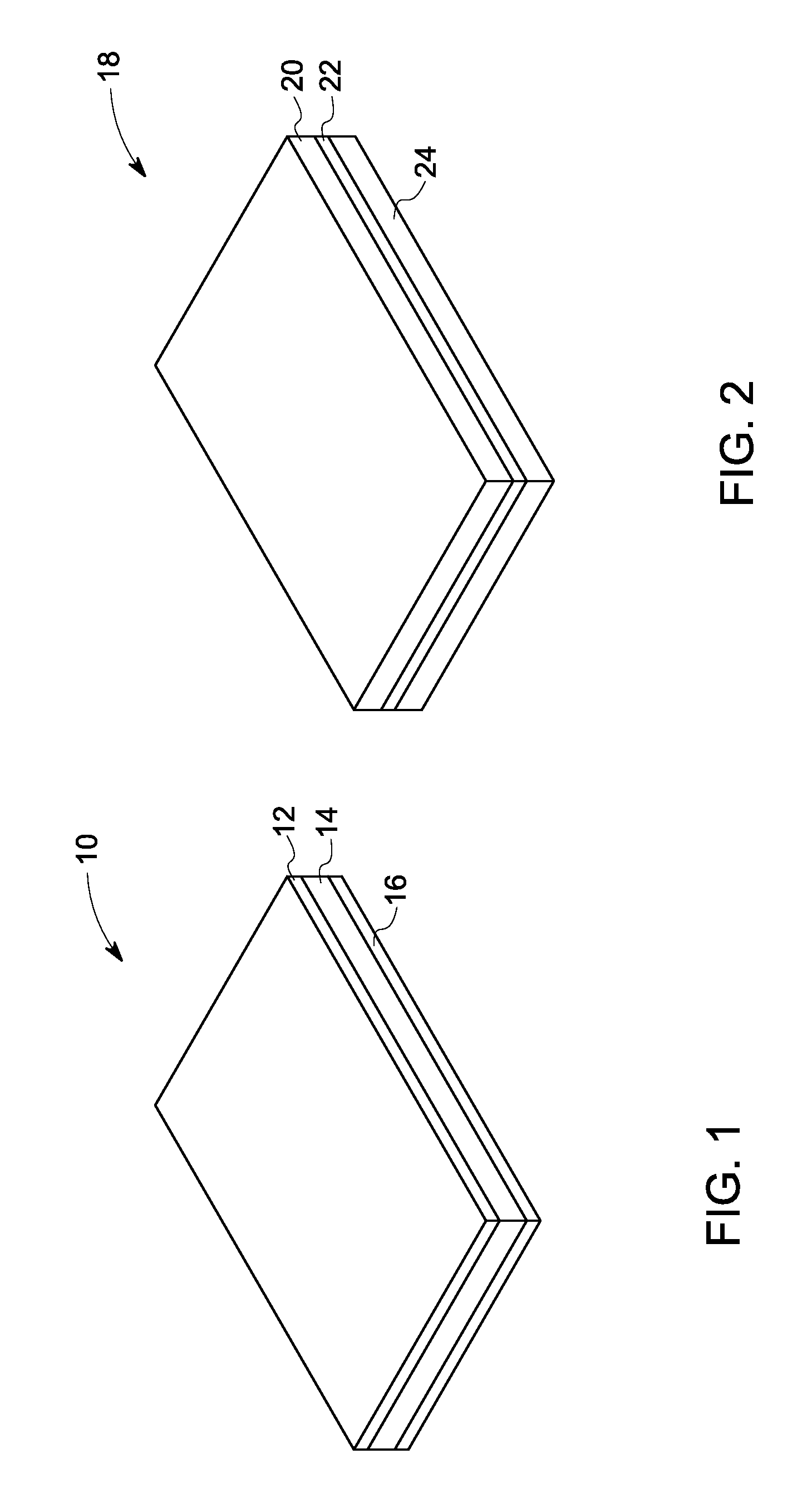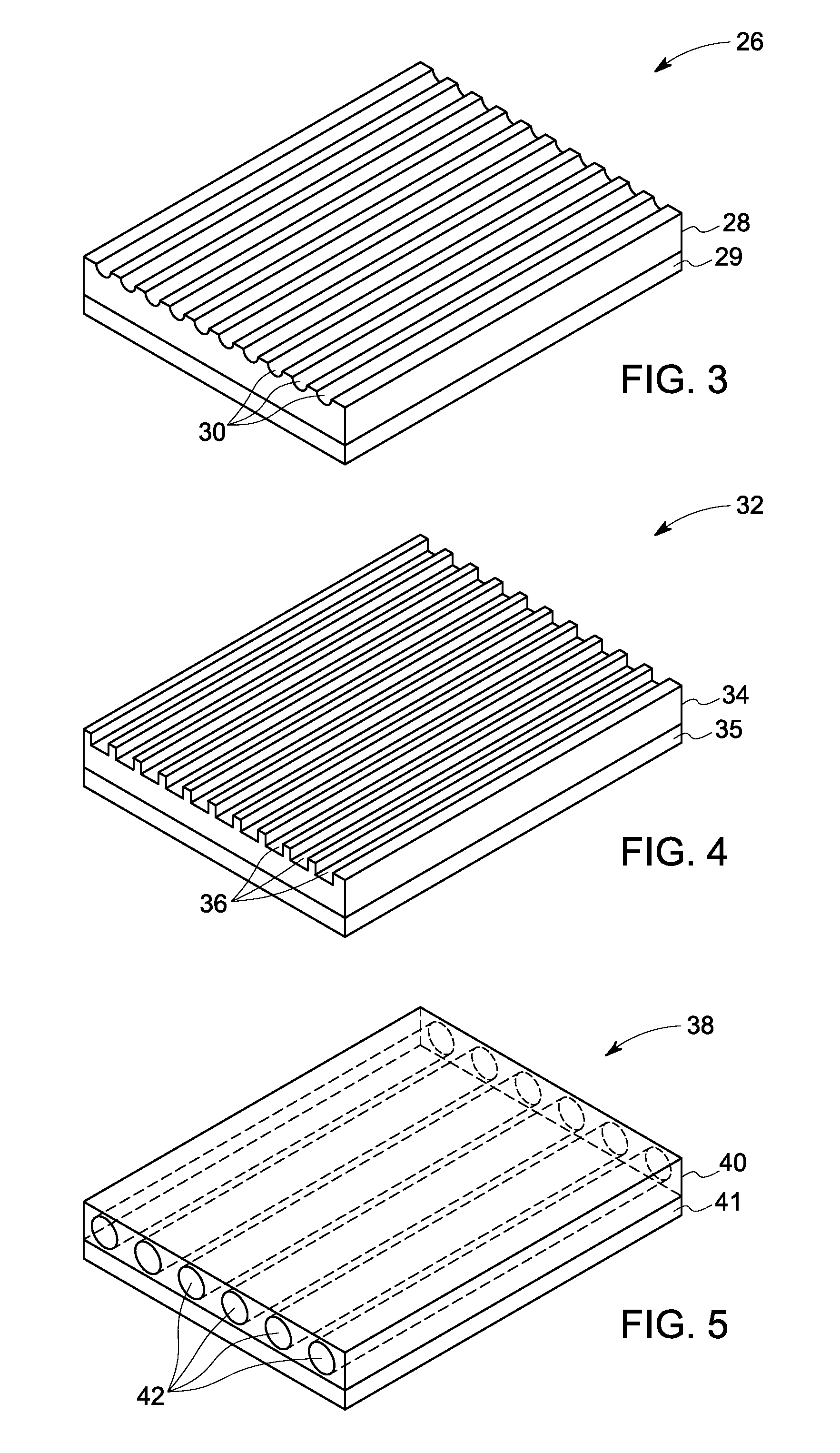Fluidic thermal management article and method
a technology of flue gas and thermal management article, which is applied in the field of flue gas thermal management article and method, can solve the problems of increasing the size and/or footprint of the module, generating noise from fans or piezoelectric devices, and a heat dissipation obstacl
- Summary
- Abstract
- Description
- Claims
- Application Information
AI Technical Summary
Benefits of technology
Problems solved by technology
Method used
Image
Examples
example 1
[0171]A sample of poly((N,N-ethylmethyl aminomethyl)styrene) (PS-Amine) is synthesized as follows: A solution of an isomeric mixture of poly(3-chloromethyl)styrene and poly(4-chloromethylstyrene) (2 grams, 13.2 millimoles) and N-ethylmethylamine (CAS No. 624-78-2, 11.8 grams, 200 millimoles) in 25 milliliters of toluene is stirred at room temperature for 5 days. The reaction mixture is a slurry containing precipitated solids. The reaction mixture is transferred to a separatory funnel and diluted with toluene. The organic phase is washed twice with 1 weight percent aqueous NaOH solution, twice with water, and the solvent is removed under vacuum. The tacky, white solid residue is dissolved in methanol and precipitated into water in a blender. The collected solid is air-dried, and then dried in a vacuum oven at 50 degrees Celsius to afford the reaction product of poly(N,N-ethylmethyl aminomethyl) styrene.
example 2
A Transparent Organic Light-Emitting Device Fabrication
[0172]Preparation of Green / Red / Blue OLED
[0173]Step 1a: Preparation of a Green-Color Organic Light-Emitting Device (Green OLED).
[0174]A glass substrate is coated with a layer of indium tin oxide. Indium tin oxide is commercially available from Applied Films, Inc. (Evanston, Ill.). The coated substrate is exposed to ultraviolet radiation. A layer (ca. 60 nanometers) of poly(3,4-ethylendioxythiophene / polystyrene sulfonate (PEDOT:PSS) (BAYTRON® is commercially available from Bayer Corporation (Pittsburgh, Pa.)), is deposited onto the indium tin oxide coated substrates via spin-coating to form an intermediate. The intermediate is baked for 1 hour at 180 degrees Celsius in air to form a PEDOT layer. A layer (ca. 70 nanometers) of a green light-emitting polymer (LEP) (LUMATION® 1304 is commercially available from Dow Chemical (Midland, Mich.)) is spin-coated onto a surface of the PEDOT layer to form a green LEP layer. The samples are t...
example 3
Display Layer Fabrication
[0187]A 500 nanometers thick layer of polycarbonate having a percentage transparency of 80 at a wavelength of 550 nanometers is used as the substrate. Light emitting devices, as prepared in step 3 of Example 2, are secured to the polycarbonate layer to form pixels on a display layer. Each pixel comprises a light emitting device comprising a red, green, and / or blue OLED and a TFT. The TFT is operably coupled with the OLEDs. The assembly is aligned such that the color emitted consists of the light emitted by the display layer based on the on-off condition of the TFT controllers. The edges of the assembly are sealed with the NORLAND ADHESIVE to provide mechanical integrity.
PUM
| Property | Measurement | Unit |
|---|---|---|
| thickness | aaaaa | aaaaa |
| viscosity | aaaaa | aaaaa |
| refractive index | aaaaa | aaaaa |
Abstract
Description
Claims
Application Information
 Login to View More
Login to View More - R&D
- Intellectual Property
- Life Sciences
- Materials
- Tech Scout
- Unparalleled Data Quality
- Higher Quality Content
- 60% Fewer Hallucinations
Browse by: Latest US Patents, China's latest patents, Technical Efficacy Thesaurus, Application Domain, Technology Topic, Popular Technical Reports.
© 2025 PatSnap. All rights reserved.Legal|Privacy policy|Modern Slavery Act Transparency Statement|Sitemap|About US| Contact US: help@patsnap.com



